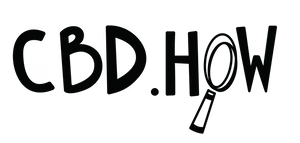Cannabis was officially legalized in South Africa in September 2018. Since then CBD cowboys have been cutting CBD products with palm oil (MCT vegetable oil).
Much like the Spanish, South Africans can now grow and consume cannabis in private, for personal use, but selling it or consuming publically could still get us into legal trouble.
This doesn’t stop some people from doing just that, though. There are cannabis shops all over South Africa selling a wide range of THC-rich products, leaving the public confused about where the legal line is actually drawn.
At the same time, the local CBD industry has exploded—especially since, in May 2019, CBD was also officially legalized. But only for a year.
South African law opens the door for anyone to sell CBD
This temporary law makes it legal for anyone, from registered pharmacists to cannabis advocates, to sell any product or concoction containing CBD without needing a prescription from the buyer. And without needing much of anything apart from a recommended daily dose of no more than 20mg a day.
This is the seemingly arbitrary number the South African Health Products Regulatory Authority (SAHPRA) has decided qualifies as a low enough dose to avoid any perceived liability risk while they “consult with industry stakeholders” to determine more definitive guidelines.
CBD products also cannot, by law, claim to cure or treat any specific condition. Other than this, much like in the U.S. there is little to no regulation in terms of quality.
And, most recently, news broke that the two biggest health retailers, Clicks and Dischem are now selling CBD products alongside homeopathic tinctures and other supplements. Great news for consumers? Not exactly.
The Hemp People did a brief investigation into the brands available on the shelves. What we found was a mishmash of mostly locally-produced isolate-based products alongside one reputable U.S. brand that has an existing presence in the marketplace.
As the educated CBD consumer is aware, because of the entourage effect (the whole plant working better in our body than one part of it), isolate based products are pretty ineffective at low doses. But with the 20mg a day dosage limit in place, the uninformed South African consumer is left paying market rates for a product that is of inferior quality and efficacy.
The reason CBD isolate dominates the market so much in South Africa is that hemp is still illegal to grow here. Until fairly recently, it was also tricky to import full-spectrum products. So most companies who just want to jump on the CBD gravy train while it’s still gathering steam are simply going for the easiest and cheapest way in.
In one of the products for sale on the shelves, “MCT vegetable oil” is listed as an ingredient.
This problem runs deeper than just isolate versus full-spectrum though.

What is MCT vegetable oil (Palm Oil)?
In one of the products for sale on the shelves, “MCT vegetable oil” is listed as an ingredient. In case you’re not sure, that’s palm oil. Yep, the cheap (and nasty) stuff which appears in everything from cookies to cosmetic products and poses major environmental problems, including deforestation and habitat destruction.
Now, we have contacted the producer to find out more about where their palm oil is sourced and how sustainable it is, and we await an answer. However, when producers are skimping on costs like this, we have to ask ourselves why.
And these were just tinctures and topicals. Outside of the two large healthcare chains now selling these, the South African market is rapidly clogging up with every CBD gimmick under the sun.
In a market that’s not yet reached CBD saturation, where U.S. giants have bought out smaller startup brands and are quickly setting up shop countrywide and producing plastic bottled flavored CBD water for the masses, anything goes.
All the more reason to educate ourselves before we buy MCT vegetable oil. We simply cannot assume everyone in this space is really in it for the sake of our well-being.
